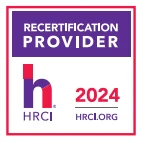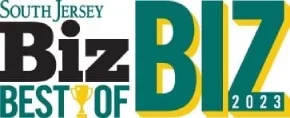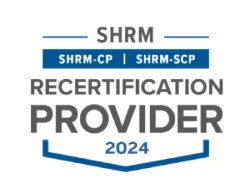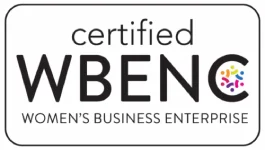DHS Terminates I-9 Form Remote Option Flexibility; Considerations for Remote Workers
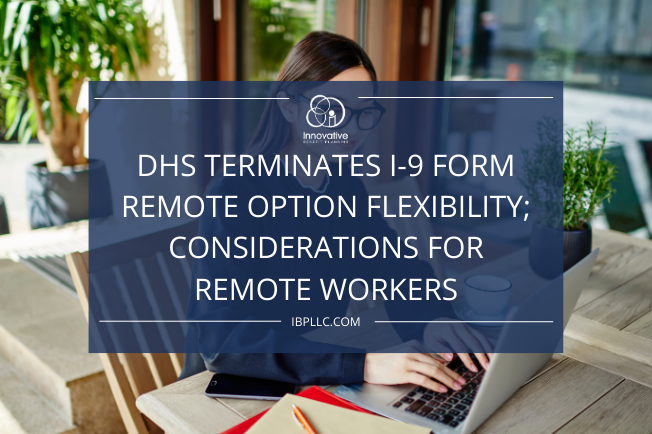
For employers that remotely verified I-9 forms during the pandemic, the deadline for completing in-person verification is fast approaching. As background, the Department of Homeland Security (DHS) had provided additional flexibility due to COVID-19 to review I-9 documentation remotely and had previously announced that employers would have until July 31, 2023, to complete an in-person review of the I-9 documents that had originally been reviewed remotely under this flexibility policy. However, on May 4, DHS announced a 30-day “grace period” that extends the deadline until August 30. While immigration officials have repeatedly extended the I-9 flexibility since initially adopting the policy in March 2020, this recent delay is in the form of a grace period rather than another extension, so employers should plan for the end of the flexibility policy and prepare to comply with the in-person review requirements of I-9s previously reviewed under the remote flexibility policy.
The best practice to follow for I-9s if the workplace has employees present remains conducting in-person document reviews by an employee trained in I-9 protocols (“employer representative”) or by a third-party (“authorized representative”). The employer representative or authorized representative should meet with the employee in person, either at the workplace or a convenient location, examine the documents provided, and fill out the employer’s portion of the I-9.
However, many employers may still have remote workers in locations where the employer does not have a physical presence. In cases where it is impractical for the employee to appear in person in the employer’s offices or a mutually convenient location, an employer may designate an authorized representative to fill out Forms I-9 on behalf of the employer. Authorized representatives could include neighbors, managers, personnel officers, attorneys, foremen, agents, staff at the applicable state unemployment or workforce agency, or a notary public (except that California does not allow notaries to complete I-9s). In addition, an employer may also be able to secure the services of companies that will travel to remote employees to complete I-9s.
DHS does not require the authorized representative to have specific agreements or other documentation for Form I-9 purposes. However, if an authorized representative fills out Form I-9 on behalf of the employer, the employer is still liable for any violations in connection with the form or the verification process. Accordingly, it is recommended that the employer carefully review any form completed by an authorized representative and consult with immigration counsel regarding the remote verification process.
For those employers that qualified to use the remote document inspection method that was authorized during COVID, they are required to visually inspect, in person, those employee documents presented virtually by the employee once they return to “normal operations.” This must be done within three business days. Under the DHS grace period, employers have until Aug. 30, 2023, to perform all required physical examination of identity and employment eligibility documents for those individuals hired on or after March 20, 2020, and who have only received a virtual or remote examination under the flexibilities.

This information is general and is provided for educational purposes only. It reflects UBA’s understanding of the available guidance as of the date shown and is subject to change. It is not intended to provide legal advice. You should not act on this information without consulting legal counsel or other knowledgeable advisors.
Categories
Archive
